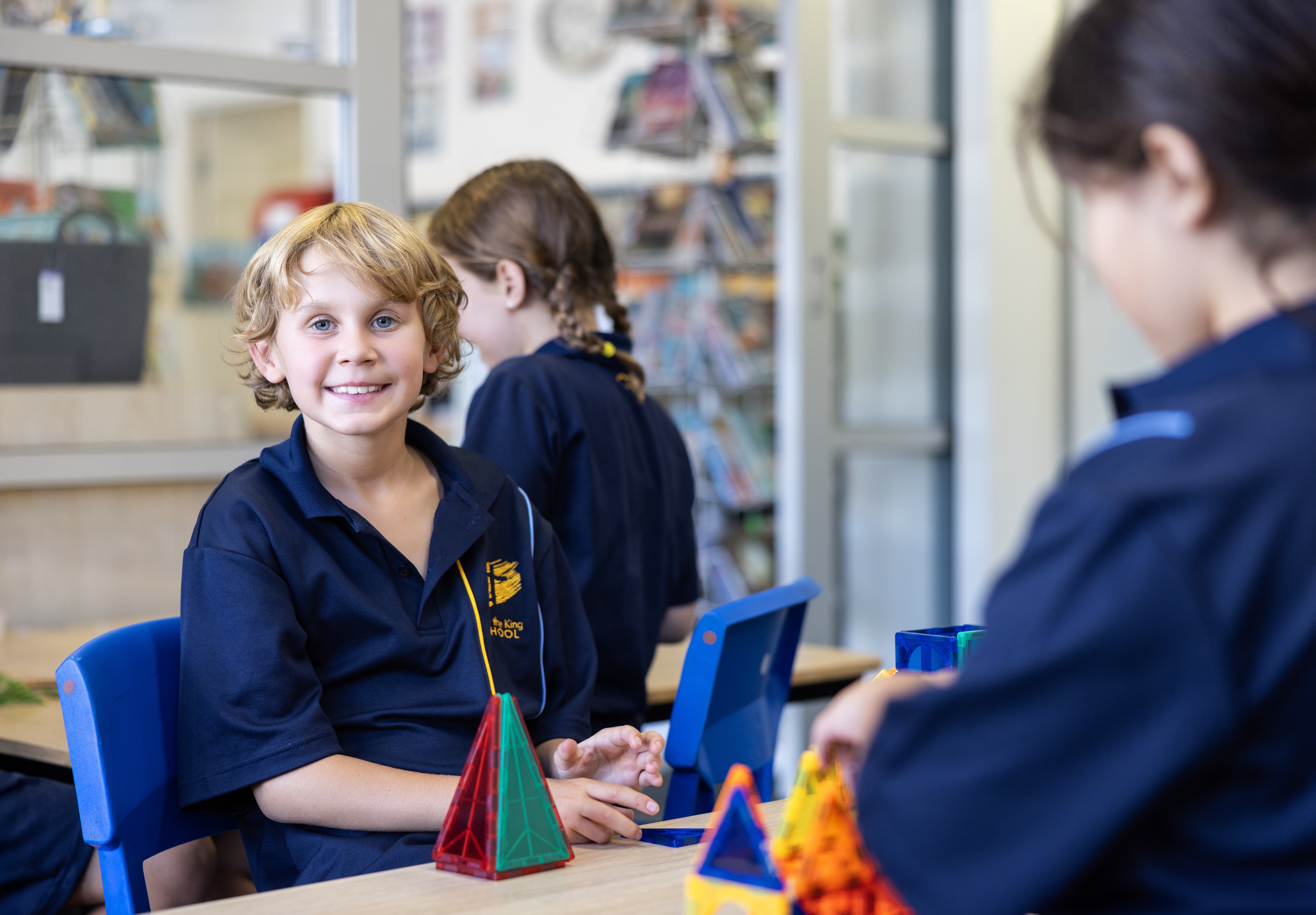
We are an inclusive learning environment, providing the opportunities your child needs to succeed. Christ the King school gives students the chance to develop as self-directed learners able to determine their own futures in a changing world.
We use emerging technologies as learning tools to connect your son or daughter to the global environment as they make sense of their world. We have electronic whiteboards in all rooms, banks of computers, laptops and iPads. The students access particular technology ‘anytime and anywhere.’
As well as using technology, your child will also have the opportunity to design, make and critique products and materials developing their own skills as designers and problem solvers.
All teaching and learning at Christ the King School is linked to the Australian curriculum and Crossways Religious Education documents. The Living Learning Leading Framework underpins everything we do, ensuring our students develop the knowledge, skills and attributes they need to thrive in a rapidly changing and complex world.
The ''Living, Learning, Leading " Framework is at the foundation of student's life at Christ the King, Warradale. Our focus is to guide our children's understanding and development of the key capabilities which will help them to succeed as citizens of this rapidly changing world.
View the video below to learn more about the Living Learning Leading Framework.

Mathematics provides students with essential mathematical skills and knowledge in Number and Algebra, Measurement and Geometry, and Statistics and Probability.
It develops the numeracy capabilities that all students need in their personal, work and civic life, and provides the fundamentals on which mathematical specialties and professional applications of mathematics are built.

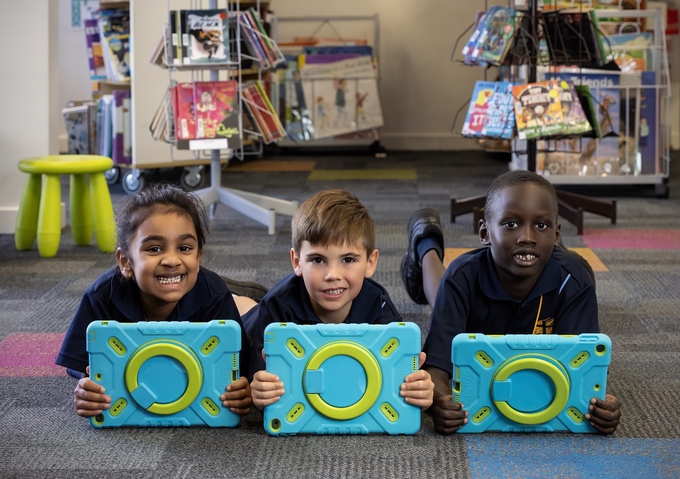
Technologies describes two distinct but related subjects.
In Design and Technologies students use design thinking and technologies to generate and produce design solutions for authentic needs and opportunities.
In Digital Technologies students use computational thinking and information systems to define, design and implement digital solutions.

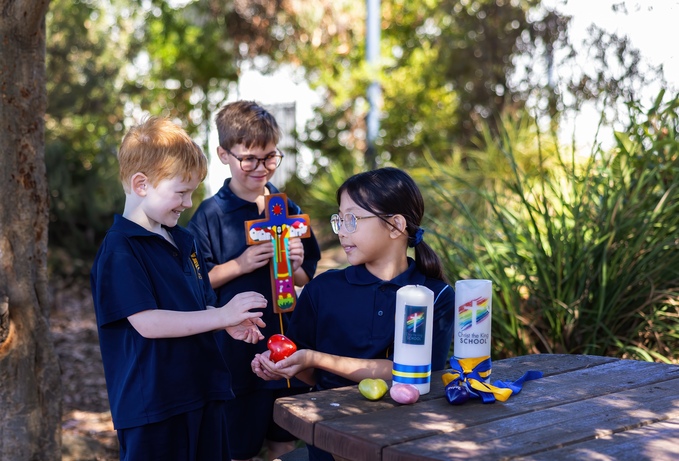
As your child grows in their Christian understanding of God, the Church, and human person, they will learn about culture, faith, and life.
Their experience of the rich tapestry of beliefs, values, rituals, and teachings creates an authentic and life-giving experience of the Church.
School Mass is a shared experience of Eucharist and prayer and the School Assembly is an opportunity for the community to celebrate our faith and our gifts. Parish and community involvement is part of the life of the school.
The Made in the Image of God program will also develop your child's understanding of faith and God in the role of human relationships and sexuality.

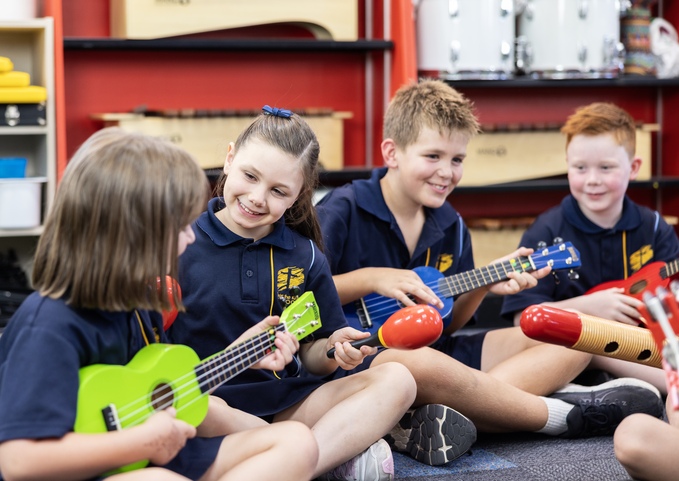
The five Arts subjects in the Australian Curriculum are Dance, Drama, Media Arts, Music, and Visual Arts.
Together they provide opportunities for students to learn how to create, design, represent, communicate and share their imagined and conceptual ideas, emotions, observations and experiences.

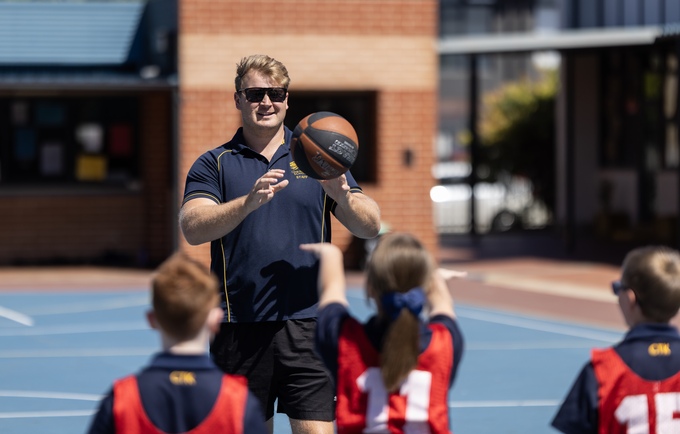
In Health and Physical Education students:
